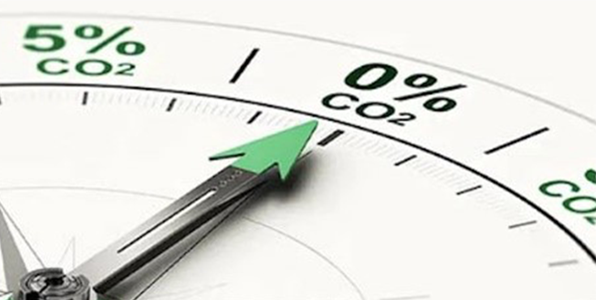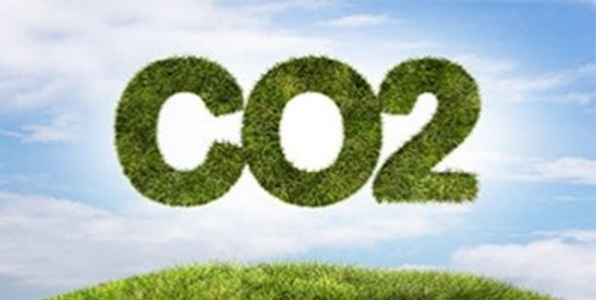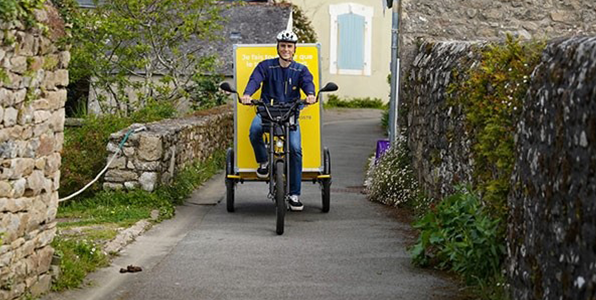To combat climate change and the destruction of biodiversity and ecosystems, companies need to drastically reduce their environmental footprints. La Poste, which has a strong regional and local presence through its various business activities, has been working on this issue for 20 years.
Everything you need to know about carbon neutrality
The role of greenhouse gases (and carbon) in climate change
Greenhouse gases in the atmosphere help to regulate the climate and make the earth habitable by trapping a large proportion of the sun's energy (infrared radiation) in the atmosphere. Unfortunately, human activity is having an unbalancing effect on the natural greenhouse effect by increasing the concentration of these gases in the atmosphere, which in turn leads to an increase in average temperatures on Earth. The accumulation of carbon dioxide (CO2) in the atmosphere accounts for 2/3 of the increase in the greenhouse effect caused by human activity (gas and oil combustion, deforestation, cement works, etc.).

The challenge: to limit global warming to 2°C
Climate change is already happening. According to estimates by the IPCC (Intergovernmental Panel on Climate Change), human activity has already caused global warming to reach 1.1°C above pre-industrial levels.
Any further warming rapidly exacerbates the dangers to which not only the human population but also the ecosystems that sustain us are exposed. This is why, in 2015, 193 countries and the European Union adopted the objective of "keeping a global temperature rise this century well below 2 degrees Celsius above pre-industrial levels" as part of the Paris Agreement (COP21).
Aiming for carbon neutrality in Europe by 2050
To help achieve the goal of limiting global warming to 2°C, the European Union, a signatory to the Paris Agreement, has set itself the target of reducing emissions in Europe by at least 55% by 2030 compared to 2005 levels, and achieving carbon neutrality by 2050.

This means that greenhouse gas emissions will have to be drastically reduced, to reach a level of residual emissions low enough to be offset by sequestration in carbon sinks (soil, forests and oceans). France, which is also a signatory to the Paris Agreements, has set itself the same objective of achieving carbon neutrality by 2050, which implies a 6-fold reduction in the country's greenhouse gas emissions compared with 1990 levels.
Defining Le Groupe La Poste's carbon footprint
In 2021, the transport sector will account for 30% of greenhouse gas emissions in France. This footprint has prompted the Group to measure and assess its greenhouse gas emissions since 2012:
With its core business of delivering mail and parcels, which still accounts for more than 60% of the group's revenue, Le Groupe La Poste is a logistics company, requiring a considerable amount of transportation, mainly by road (74%) but also by rail, sea (0.01%) and air (14%). It owns more than 90,000 vehicles in France and abroad, not counting sub-contractor fleets.
The Group also owns 11,000 buildings, which are potential sources of greenhouse gas emissions from heating and electricity supply. These 11,000 buildings are spread throughout the country and are related to the post office network as well as industrial and logistics operations.
Lastly, as an investor, La Banque Postale contributes to the GHG emissions of the projects it supports, either directly or via its customers' savings.
In total, in 2022, Le Groupe La Poste emitted 2,392,988 tonnes of CO2 equivalent (excluding scope 3 for La Banque Postale), 88% of which related to transportation. For the scope of La Poste SA and its SBTi trajectory validated in 2019, these emissions fell by 22.6% between 2013 and 2022, and the Group's emissions as a whole are set to fall further drastically as part of an ambitious voluntary policy with a reduction target of 90% between 2020 and 2040.
A bold trajectory for reducing emissions
The Group's strategy of contributing to global carbon neutrality by 2050 involves all its activities in ambitious projects
Reducing greenhouse gas emissions from mail and parcel operations by 90% by 2040
For delivery operations, which are undergoing spectacular growth in tandem with the boom in e-commerce, an analysis of the life cycle of a parcel has identified the main levers for action: reducing the empty space in each parcel by 25 to 30%, using reusable packaging, continuing to introduce electric vehicles into the fleet (target of 15,000 electric vehicles by 2025, i.e. 40% of the fleet, including 1,000 cargo bikes), and raising consumer awareness of their delivery and consumption choices. Bulk storage" and swap bodies, which maximise carrying capacity and optimise road routes, are an important way of reducing emissions.

Reducing the carbon impact of the Group's 11,000 buildings
100% of the Group's buildings are supplied with electricity from renewable sources, in particular via 51,600 m2 of photovoltaic panels at 54 Group sites.

In addition, in 2020, 196 sites, covering almost 900,000 m2, were awarded ISO 50001 certification for a period of three years, following the introduction of an EMS (energy management system) that both controls costs and significantly reduces emissions. The buildings concerned are those of the Services-Mail-Parcels division and La Banque Postale.
Group actions to offset residual emissions
In addition to reducing its own emissions, the Group helps to finance projects that contribute to global carbon neutrality through carbon sequestration or replacing fossil fuels with renewable energy sources.

To select these projects, the Group relies on its partners: EcoAct, SouthPole and the Livelihoods climate solidarity fund. The Group is also rolling out a programme called 'Climat + Territoires', aimed at preserving natural ecosystems in France while supporting the development of the local economy. By the end of 2022, this programme will have 26 projects, all of which have been awarded the "low carbon" label, the French benchmark for voluntary carbon offsetting.
